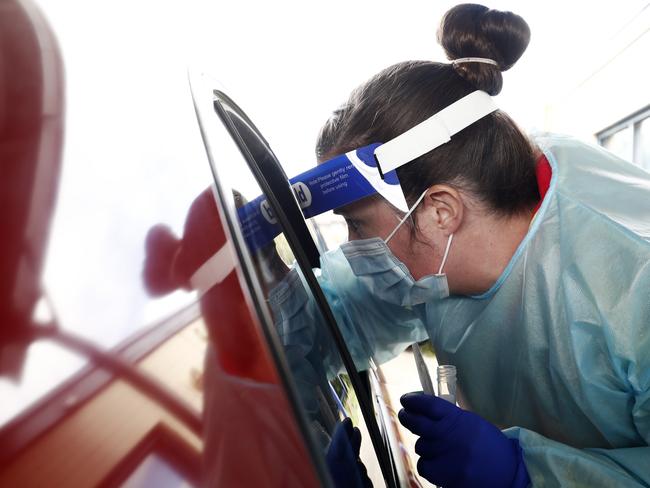Talking Point: Tasmanians, get tested for coronavirus
Some people who caught coronavirus in Tasmania earlier this year first thought their symptoms were just hay fever. A drive-up testing clinic opens at the DEC today so residents can keep ensuring we remain COVID-free, says Mark Veitch >>
Opinion
Don't miss out on the headlines from Opinion. Followed categories will be added to My News.
TASMANIA did its first test for coronavirus on January 31.
Since then we have performed more than 120,000 tests.
We urge southern Tasmanians to help us keep these rates strong, because testing people who have coronavirus symptoms is a crucial part of our response to the pandemic.
As well as our usual testing services available in the South of the state, in the coming days there will be a COVID mobile testing clinic at the Derwent Entertainment Centre in Glenorchy.
Drive-up testing will be available between 10am and 3pm today (Friday, November 13), tomorrow and Sunday.
You don’t need to book, just show up.
Many symptoms of early and mild coronavirus are the same as those of colds and flu and could even be confused with hay fever.
Testing people with symptoms helps us to work out if someone has coronavirus, and if they do, to quickly isolate them, and trace and quarantine their contacts who may also be infected. This reduces the spread of coronavirus in the community.
For many months people across Tasmania have done a great job of taking symptoms seriously and getting tested.
This testing has given us confidence that coronavirus has not been circulating in our communities.
This spring and summer around one in five Tasmanians will experience symptoms of hay fever, such as runny nose, itchy eyes and sneezing. Seasonal hay fever is due to an allergic reaction to pollen, not an infection.
But because the same symptoms as hay fever can also occur with coronavirus, we are asking any Tasmanian who has such symptoms to get tested for coronavirus, even if they suspect it is their normal hay fever.
Some people who caught coronavirus in Tasmania earlier this year first thought their symptoms were just hay fever. When your coronavirus test is negative, please see your GP about controlling your hayfever symptoms and get a certificate so you can attend work or school.

If your symptoms get worse, please go back to your doctor for review and possibly re-testing for coronavirus.
We understand that some Tasmanians will find this advice frustrating because of their own long experience of hay fever, but it is very important that we do not miss coronavirus cases.
Throughout the pandemic, testing in Tasmanian has been guided by expert national and local advice.
Tasmania focuses its testing on people with symptoms. We will also test people who may be at increased risk of coronavirus because of where they have been or who they have been in contact with.
We have put in place a system that identifies other states and territories and international destinations as low, medium or high risk, to guide requirements for people entering Tasmania.
We determine these areas by looking at the level of unexplained community transmission and the circumstances and control of these cases.
Areas with no or few recent cases of unexplained community transmission may be deemed low risk. People entering from these areas no longer need to quarantine on arrival in Tasmania but are required to register their details prior to entry and are subject to temperature checks and health screening questions. We also provide information about how to get tested if they develop any cold or flu-like symptoms.

From October 26 people from low risk areas have been able to arrive and travel in Tasmania without needing to quarantine on arrival. It is important to know that these people pose a very low risk of COVID-19. We can safely welcome them in our state.
Areas that are deemed as medium or high risk still have restrictions in place that include measures such as 14 days quarantine.
We continue to monitor the situation locally, interstate and overseas and have put in place measures to reduce the risk to Tasmanians.
COVID-19 remains widespread and uncontrolled across much of the world. So even though we may lift restrictions on interstate arrivals, some measures will remain in place for as long as COVID-19 remains a risk to our state. We retain limits on the number of people with whom we mix closely to reduce the risk and consequences of an outbreak from a rare case of coronavirus in Tasmania.
Testing is critically important to help keep us all safe. We can only stop the spread if we identify cases early. The most important thing that you can do is to get tested if you get symptoms such as fever, runny nose, cough, sore or itchy throat, shortness of breath or lose your taste or smell.
To arrange a test, call the Tasmanian Public Health Hotline 1800 671 738 or your GP for more information.
Dr Mark Veitch is Tasmania’s Public Health Director.


